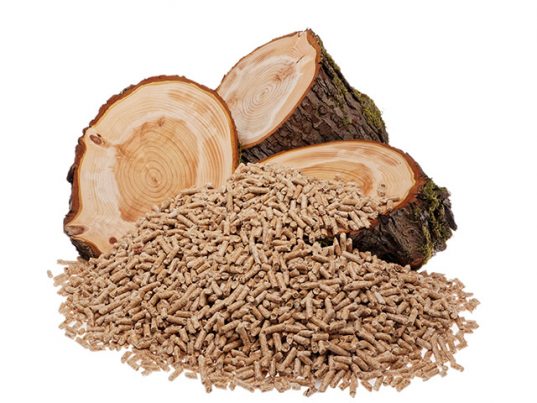
Alternative fuel for home heating reduces emissions and recycles waste: Researchers say wood pellet fuel is a win-win that outperforms traditional fuels
Monday, December 25, 2017 by Ralph Flores
http://www.realsciencenews.com/2017-12-25-alternative-fuel-for-home-heating-reduces-emissions-and-recycles-waste-researchers-say-wood-pellet-fuel-is-a-winner.html

Wood pellets not only look cool, but they’re also doing great things for the environment. According to a study conducted by the University of New Hampshire, utilizing wood pellets as your primary source of home fuel cuts greenhouse gas (GHG) emissions by more than half, compared with fossil fuels and natural gas.
“Wood pellet heat is a new and growing heating alternative in the U.S. and has been proposed as a climate-beneficial energy source to replace fossil fuels. However, little work has been done to assess this claim,” the researchers said.
“The opportunity for switching to wood pellet heat is particularly great for the Northern Forest region of northern Maine, New Hampshire, Vermont, and New York, which is home to more than two million people who live in rural communities, larger towns, and small cities surrounded by the largest intact forest in the eastern United States.”
Here are other notable results from the study published in the journal Energy:
- Pellets from sawmill residues were shown to have the highest GHG emission benefits over fossil fuel and propane.
- Pellets made up of 75 percent pulpwood, and 25 percent sawmill residue created benefits.
- Shifting existing harvest of pulpwood volume to pellets helps the climate.
- Market situations that either expand or diminish harvest levels have a significant effect on the outcome.
According to the Department of Energy, at least 48 percent of the energy used at home is expended for heating and cooling. An average home in the U.S. will use 42 percent of its energy for space heating, as opposed to six percent for air conditioning. Heating water also uses a significant amount of energy at 18 percent. For heating, specifically, natural gas and heating oil (fuel oil) are used; in rural areas, propane is also used.
These sources are part of a group called “fossil fuels” – non-renewable resources that come from prehistoric plant and animal matter. The Energy Information Administration reports that fossil fuels have been the main energy source in the country for over a century. Currently, the majority of homes in the country, including newer homes, use fossil fuels as their main source of energy. This widespread use of fossil fuels makes it the primary source of GHG emissions as well, with 75 percent of total emissions.
Wood pellets are good alternatives to fossil fuels and can result in reduced overall emissions – a study estimates this to lower emissions by 93 percent compared to coal. Additionally, these materials use wood waste – excess materials from other wood products like bark, sawdust, wood scrap and paper mills. This reduces emissions further and recycles the material as they do not go to landfills but are reused as fuel. (Related: The Best Alternative Heating Methods for Your Home.)
A study made by the University of Florida indicates that wood can be a viable alternative energy source. Aside from being inexpensive, wood fuel carry fewer environmental risks than fossil fuel. A separate study noted that wood pellets and its derivatives are carbon-neutral, which means that these pose no significant increase in the atmosphere, as long as another tree is planted in place of those that were used in the production of the fuel.
Save energy at home, even if you’re home
Here are some tips from the Department of Energy to help you reduce your energy consumption and help you save on expenses:
- Soak up some sun – Open your windows during the day to let sunlight seep in and naturally heat your house. Close them at night to trap the heat, and keep out the chill of the night sky.
- Cover up (your windows) – If you have drafty windows, weatherize them by covering them up with drapes or by sealing the frames.
- Set your temperature right – Make sure you properly adjust your thermostat whenever you’re home or away. This will save you at least 10 percent of expenses for heating and cooling.
- Have your house checked – Regularly have your heating system inspected to see if they function or need repair. Additionally, you can have your home inspected for air leaks so you can save up on heating costs.
Learn how wood pellets can help you save up on gas bills on Natural.news.
Sources include:
Tagged Under: Tags: alternative energy, energy, environ, fossil fuels, goodscience, green living, Greenhouse Gas, greenhouse gas emissions, heat energy, home living, natural gas, pollution, wood pellets, wood waste





